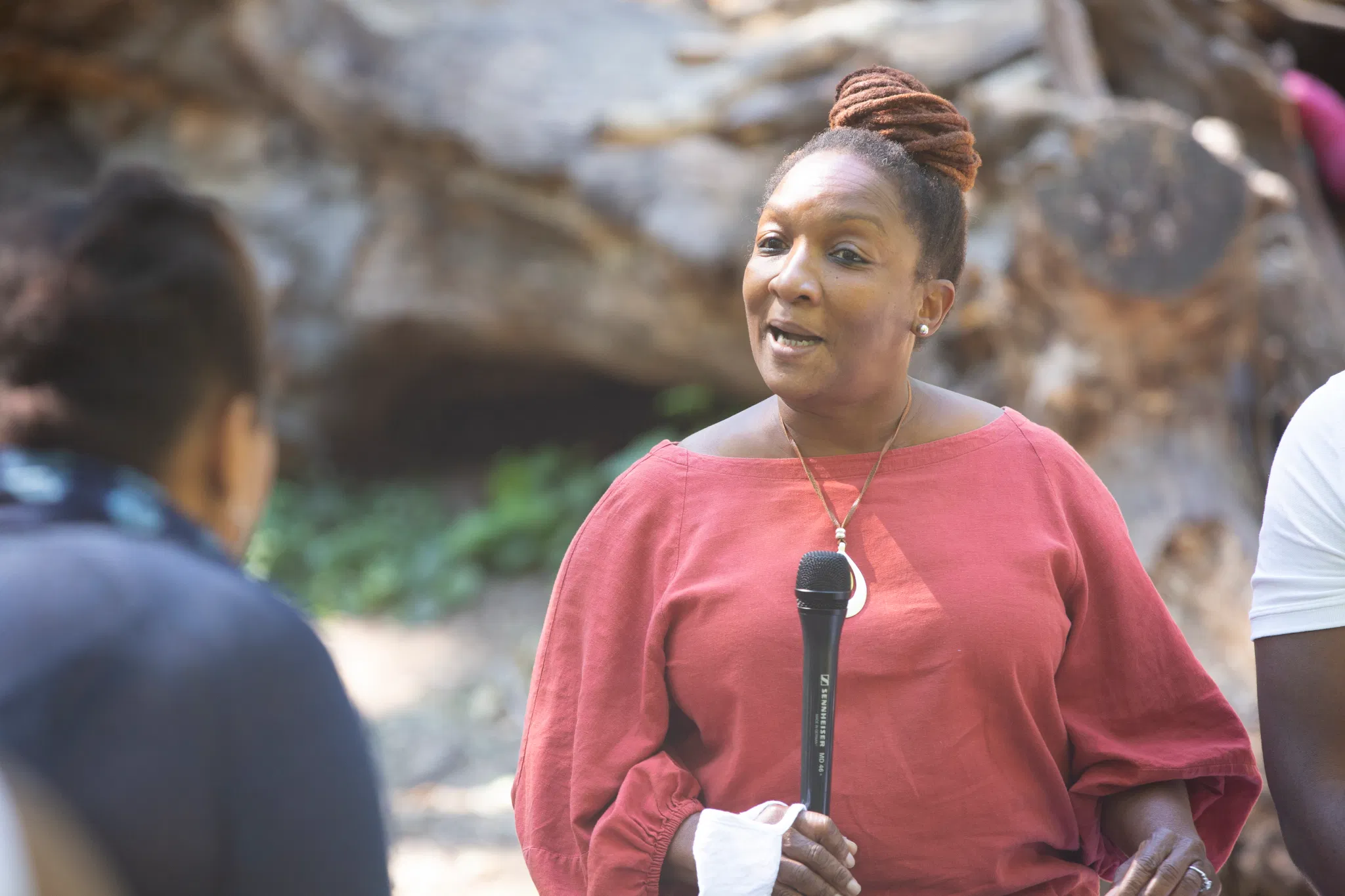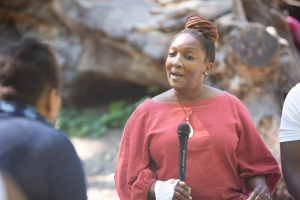
Written By: Olivia McCaa

After nine months following the Haitian Studies Institute (HSI) founding Director Jean Eddy Saint Paul stepped down, Dr. Marie Lily Cerat, professor of Africana Studies and Modern Languages and Literatures, will step in as the new substitute Associate Director, becoming the first woman to do so.
“I am extremely aware of the contributions of my culture to this region and the world,” wrote Cerat in a statement to the Vanguard. Cerat is Haitian and noted that “Sharing this passion and keeping others engaged were the main reasons I wanted to help lead the Institute.”
Cerat has been a part of the Brooklyn College community since 2003, having started as an adjunct in various Haitian programs. She graduated from the CUNY Graduate Center in 2017 with a doctorate in Urban Education and a certificate in Africana Studies, driven by her passion for teaching. “I see this new role as an extension of what I have been doing for years. I want to help educate the public through the Institute,” Cerat wrote.
The CUNY HSI is an important resource for the Haitian community that dates back to 1985 when a group of CUNY students and Haitian community members proposed establishing a Haitian Studies Program within the Brooklyn College African Studies Department.
The formal establishment of the institute was seen after the January 2010 earthquake that killed about 300,000 people. The Haitian community saw massive destruction of the higher education infrastructure in Haiti and decided to create an institute that would aid their brethren abroad. CUNY faculty members helped in transferring technical support to five regional public universities in Haiti.
After much work and guidance from BC administrators, the institute formally opened its doors at Brooklyn College in April 2016.
Cerat explained that there are three central pillars on which the institute was established. The first being research and its dissemination. The second is policy analysis that links scholarship to social action impacting people of Haitian origin. The third includes outreaching and collaborating with various organizations that serve the Haitian community. “I will work tirelessly to ensure that the institute under my leadership makes progress in the three major pillars on which it stands,” she said.
In taking on her new role, she remains optimistic and passionate about the work she plans to accomplish.
“I am currently preparing to conduct the HSI’s first research study project with organizational leaders to gather data about needs and services in the community that will help to better understand the challenges and aspirations of the community,” she wrote. Cerat said that it is a hope of hers that the developing research will lead to advocacy for resources, programs, and activities that respond to the needs of Haitians. Above all, she aims to make the institute a “flagship Haitian research space.”
Cerat takes on her role after the BC community faced unprecedented financial challenges, landing an offer from the search committee and the Executive Board of the Haitian Studies Institute that saw her as the ideal interim leader.
“Recognizing the importance of the Haitian Studies Institute and the limitations the COVID-19 pandemic has placed on its programming, Dr. Marie Lily Cerat was brought on as the Substitute Associate Director for the Haitian Studies Institute until the college received more clarity about funding, post-pandemic,” Richard Pietras, BC’s Media Relations Manager, wrote to the Vanguard.
Cerat notes that the whole process of instating her leadership at HSI from the beginning to today has left her feeling very proud. She finds that the creation and continued support for the institute are instrumental for her community’s unification.
“While there’s still quite a good distance to go, the Institute makes Haitians feel less invisible, a community that has long been on the margins of our city, our society,” she wrote. “I am equally proud to be the first Haitian woman to lead the Institute.”
